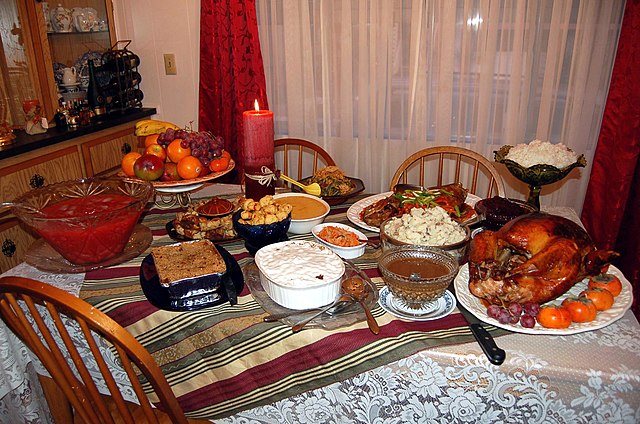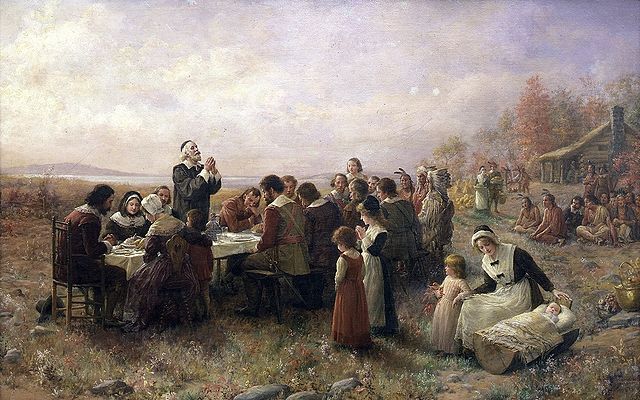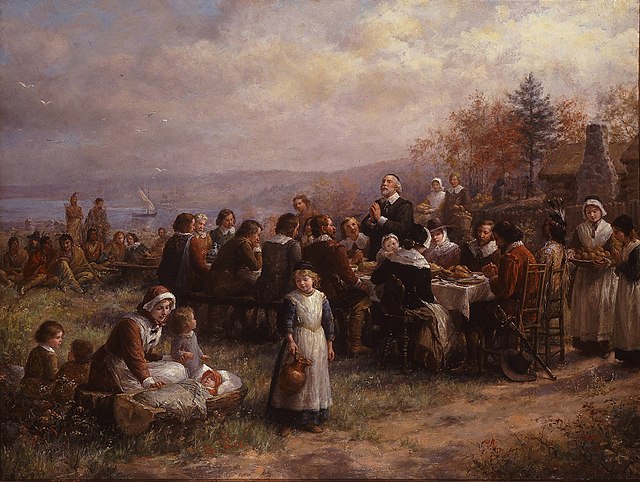Berkeley Hundred was a Virginia Colony, founded in 1619, which comprised about eight thousand acres (32 km2) on the north bank of the James River. It was near Herring Creek in an area which is now known as Charles City County, Virginia. It was the site of an early documented Thanksgiving when the settlers landed in what later was the United States. In 1622, following the Indian Massacre of 1622, the colony was for a time abandoned. In the mid 18th century, it became known as Berkeley Plantation, the traditional home of the Harrison family of Virginia. In 1862, amid fighting in the Civil War, the area was the scene of the creation and first bugle rendition of present-day "Taps".
Shrine of the first U.S. Thanksgiving in 1619 at Berkeley Hundred in Charles City County, Virginia
Thanksgiving is a national holiday celebrated on various dates in October and November in the United States, Canada, Saint Lucia, Liberia, and unofficially in countries like Brazil, Germany and the Philippines. It is also observed in the Dutch town of Leiden and the Australian territory of Norfolk Island. It began as a day of giving thanks for the blessings of the harvest and of the preceding year. Various similarly named harvest festival holidays occur throughout the world during autumn. Although Thanksgiving has historical roots in religious and cultural traditions, it has long been celebrated as a secular holiday as well.
A typical Thanksgiving dinner in the United States
Jennie Augusta Brownscombe's 1914 portrait, The First Thanksgiving at Plymouth, now on display at Pilgrim Hall Museum in Plymouth, Massachusetts
Jennie Augusta Brownscombe's 1925 portrait, Thanksgiving at Plymouth, now on display at the National Museum of Women in the Arts in Washington, D.C.
Shrine of the first U.S. Thanksgiving held at Berkeley Hundred in Charles City County, Virginia in 1619




